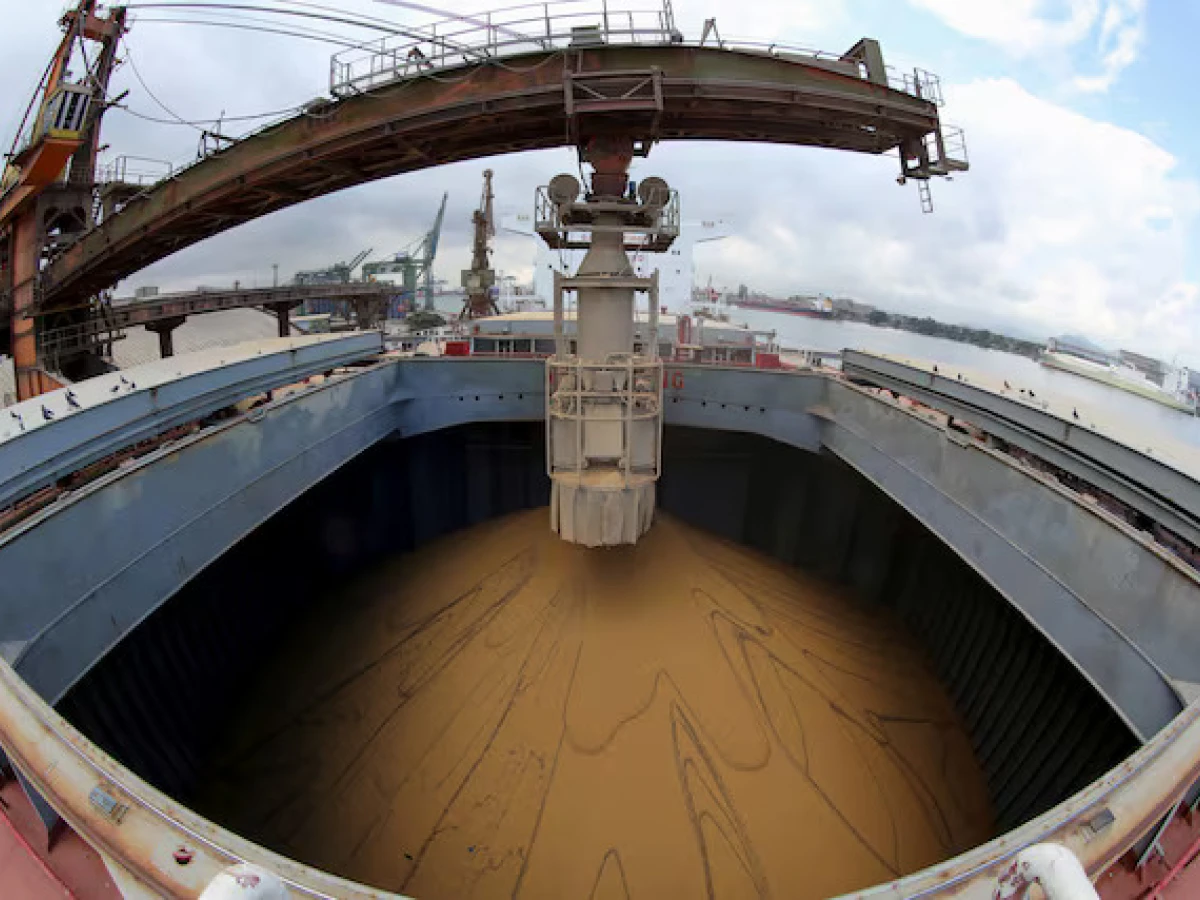
China takes nascent steps towards sourcing sustainable farm products
"They are paying more attention to sustainability ... unlike in the past when price was the only factor."
BEIJING, May 31 (Reuters) - China's flagship food group COFCO International landed its first cargo of deforestation-free soybeans for domestic use on Friday, marking what industry players say is a milestone for a country that has prioritised price over sustainability in its farm imports.
China is a top buyer of agricultural goods, including soybeans and beef, which are drivers of global deforestation, but has lagged western peers in demanding that produce including palm oil not be sourced from land linked to deforestation or conversion of natural habitats.
That is slowly changing, with state-run COFCO International as well as China Mengniu Dairy Company and Inner Mongolia Yili Industrial Group Co Ltd in the past year asking suppliers and consultants for sustainable soybeans, traders and sustainability experts told Reuters.
The volumes are tiny in the context of China's overall buying but the implications of the greener sourcing are significant, given China's voracious appetite for agricultural goods, even as it seeks to cut its dependence on imports.
The participation of COFCO, which brought in Friday's cargo at Tianjin port for Mengniu's subsidiary Modern Farming Group, also sends a signal to other buyers of Beijing's intent.
"There is a noticeable shift in buying trends among Chinese buyers towards more sustainable and environmentally friendly products,” a Singapore-based broker said, declining to be named due to business confidentiality.
Some Chinese companies have been "aggressively" asking for deforestation-free soybeans and carbon-neutral vegetable oil since last year, a manager with a global trading firm said.
Friday's 50,000 metric ton cargo of Brazilian soybeans worth $30 million had a deforestation and conversion-free (DCF) clause for the first time for an order of the oilseed from China.
"Our industry must take action to help strengthen our food systems (and) promote sustainable agriculture practices that protect our climate and environment," COFCO International Chief Executive Wei Dong said in a statement.
The shipment is a pilot project driven by the World Economic Forum's Tropical Rainforest Alliance to curb commodity export-driven deforestation. Its executive director, Jack Hurd, said COFCO's participation will stimulate more Chinese demand for sustainable products.
POLICY PUSH
While sustainability efforts in the West have often been consumer driven, China's shift is triggered by policy signals as well as investor pressure.
In 2020, President Xi Jinping pledged that China, the world's biggest polluter, will achieve peak emissions by 2030 and carbon neutrality by 2060. In an agreement last year, China and the United States said they will cooperate to curb forest loss.
New domestic stock exchange rules requiring companies to disclose ESG (environmental, social and governance) information from 2026 have added pressure, while the upcoming European Union Regulation on Deforestation-Free Products (EUDR) provides extra impetus, analysts said.
Mengniu in 2023 committed to a zero-deforestation supply chain by 2030 and joined industry group the Roundtable on Sustainable Palm Oil (RSPO) this year. Yili has a similar target for soy, palm oil, pulp and paper supply, and has said it will raise annual purchases of RSPO-certified palm oil by 50 metric tons from 2024 to achieve 650 metric tons by 2030.
A palm oil producer in Indonesia said selling to China will soon require higher standards. "They are paying more attention to sustainability ... unlike in the past when price was the only factor."
COFCO, meanwhile, has a 2025 target for a zero-deforestation soybean supply chain in ecologically sensitive areas in Latin America, including the Amazon, and has plans for sustainable palm oil and coffee supply chains.
In January, COFCO International signed a memorandum of understanding with COFCO Group's China Shengmu Organic Milk Ltd to supply 12,000 tons of DCF soybeans from Brazil, with an agreement to gradually increase the volume.
RSPO China's head, Fang Lifeng, said China's demand for certified sustainable palm oil, originally driven by multinationals such as L'Oreal and Unilever are now being led by local firms.
Still, the demand is a small fraction of China's imports, which last year included 4.3 million tons of palm oil and 99.4 million tons of soybeans.
Cost remains a deterrent. DCF soybeans can cost $2-$10 more per ton, while RSPO-certified oil can cost upwards of $15 more.
A Singapore-based trader at an international trading company that runs soybean processing plants in China said volumes will not even account for 1% of imports.
"We don't see significant volumes coming in," the trader said, adding that pressure from trade financiers could help the push towards sustainable sourcing.




